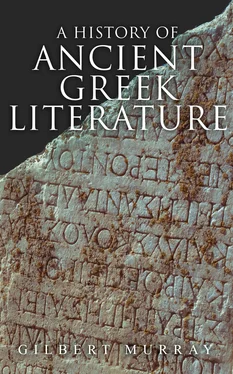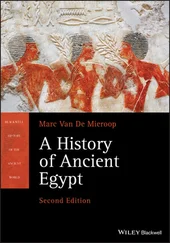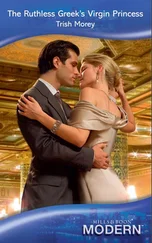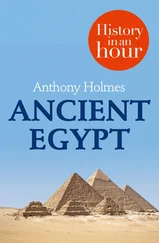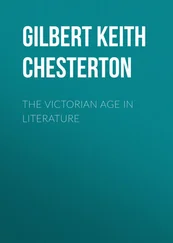The didactic poetry of Hesiod developed on one side into the moralising or gnomic epics of Phocylidês, the proverbs of the Seven Wise Men, the elegies of Solon and Theognis; it even passed into the iambics of Sêmonides of Amorgos, Archilochus, Hippônax (see p. 88). On another side, it gave rise to the poetry of science and learning. The master himself was credited with an Astronomy *and a Tour of the Earth; * but such subjects for epos cannot generally be traced to any definite authors before the fourth century, and were not popular before the time of Arâtus of Soli (ca. 276 B.C.). The first astronomical poet on record, Kleostratos of Tenedos, who watched the stars from Mount Ida, is said to belong to the sixth century. The first medical poem is perhaps by one Periander, of the fourth. The epics on cookery, which we hear of in Athenæus, were parodies rather than dissertations. The arch-gourmand Archestratos of Gela was a contemporary of Aristotle; so was Matron. It was the time of the Middle Comedy, when food and the cooking of it were recognised as humorous subjects.
But the main stream of didactic epos in early times became religious. ' Hesiod' fell under the influence of ' Orpheus.' Even the traditional poems were affected in this way. Kerkôps, the alleged 'real author' of certain Hesiodic poems, wrote a religious book, and is called a 'Pythagorean'; which must mean, in this early time, before Pythagoras was born, an Orphic. Eumêlus knew things about the under-world that he can only have learned from Onomacritus. Even the poem of Aristeas, which might be counted as a secular geographical epos, the forerunner of the various 'Periêgêsês,' evidently owed its interest to its miracles and theology.
The Orphic movement worked mostly among the common people and dropped out of literary record; we only catch it where it influences philosophy. It is the explanation of Pythagoras, the man of learning and culture, who turns from the world to become high priest of an ascetic brotherhood based on mysticism and purification.
The rise of a distinctly philosophical epos is immediately due to the curious spiritual rebellion of XENOPHANES of Colophon, a disciple of Anaximander, who was driven by the Persian invasion of 546 B.C. to earning his livelihood as a rhapsode. But he knew from Anaximander that what he recited was untrue. " Homer and Hesiod fastened on the gods all that is a shame and a rebuke to man, thieving, and adultery and the cheating one of another." He made his master's physical Infinite into God -- "there is one God most high over men and gods;" "all of him sees, thinks, and hears; he has noparts; he is not man-like either in body or mind." "Men have made God in their own image; if oxen and lions could paint, they would make gods like oxen and lions." He wrote new 'true' poetry of his own -- the great doctrinal poem On Nature, *an epic on the historical Founding of Colophon, *and 2000 elegiacs on the Settlement at Elea *of himself and his fellow-exiles. The seventy years which he speaks of as having "tossed his troubled thoughts up and down Hellas," must have contained much hard fighting against organised opposition, of which we have an echo in his Satires. * He was not a great philosopher nor a great poet; but the fact that in the very stronghold of epic tradition he preached the gospel of free philosophy and said boldly the things that every one was secretly feeling, made him a great power in Greek life and literature. He is almost the only outspoken critic of religion preserved to us from Greek antiquity. The scepticism or indifference of later times was combined with a conventional dislike to free speech on religious matters -- partly as an attack on shadows, partly as mere 'bad taste.'
The example of Xenophanes led his great philosophical disciple to put his abstract speculations into verse form. PARMENIDES' poem On Nature * was in two books, the first on the way of Truth, the second on the way of Falsehood. There is a mythological setting, and the poet's ride to the daughters of the Sun, who led him through the stone gates of Night and Day to the sanctuary of Wisdom, is quite impressive in its way. But it would all have been better in prose.
EMPEDOCLES of Acragas, on the other hand, is a real poet, perhaps as great as his admirer Lucretius, and working on a finer material. He was an important citizen, a champion of liberty against the tyrants Thêron and Thrasydaios. His history, like that of the kindred spirits, Pythagoras and Apollonius of Tyana, has been overlaid by the miraculous. He stopped the Etesian winds; he drained an enormous marsh; he recalled a dead woman to life; he prophesied the hour that the gods would summon him, and passed away without dying. His enemies said that from sheer vanity he had thrown himself down Mount Etna that he might disappear without a trace and pass for immortal. 'How did any one know, then?' 'He had brass boots and the volcano threw one of them up!' Saner tradition said that he died an exile in the Peloponnese. His character profoundly influenced Greek and Arabian thought, and many works in both languages have passed under his name. His system we speak of later; but the thaumaturgy is the real life of the poem. Take the words of a banished immortal stained by sin: --
"There is an utterance of Fate, an ancient decree of the gods, everlasting, sealed with broad oaths; when any being stains his hand with sin of heart or swears an oath of deceiving, aye, though he be a Spirit, whose life is for ever, for thrice ten thousand years he wanders away from the Blessed, growing, as the ages pass, through all the shapes of mortal things, passing from one to another of the weary ways of life. The might of the Æher hunts him to the Sea, the Sea vomits him back to the floor of Earth, and Earth flings him to the fires of Helios the unwearied, and he to the whirlwinds of Æther. He is received of one after another, and abhorred of all."
Empedocles remembered previous lives: "I have been a youth and a maiden and a bush and a bird and a gleaming fish in the sea." He hated the slaughter of animals for food: "Will ye never cease from the horror of bloodshedding? See ye not that ye devour your brethren, and your hearts reck not of it?" But bean-eating was as bad: "Wretched, thrice-wretched, keep your hands from beans. It is the same to eat beans as to eat your fathers' heads." This is no question of over-stimulating food; beans were under some religious ἄγος or taboo, and impure.
The use of the word 'lyric' to denote all poetry that is not epic or dramatic, is modern in origin and inaccurate. The word implies that the poetry was sung to a lyre accompaniment, or, by a slight extension of meaning, to some accompaniment. But the epos itself was originally sung. 'Homern' had a lyre, 'Hesiod' either a lyre or a staff. And, on the other hand, the 'lyric' elegy and iambus began very soon to drop their music. All Greek poetry originates in some form of song, in words combined with music; and the different forms of poetry either gradually cast off their music as they required attention and clearness of thought, or fell more under the sway of music as they aimed at the expression of vague feeling. We can seldom say whether a given set of words were meant for speaking or for singing. Theognis's elegies seem to have been sung at banquets to a flute accompaniment; Plato, in speaking of Solon, uses sometimes the word 'sing,' sometimes 'recite.' The two chief marks of song as against speech are, what we call the strophe or stanza, and the protracted dwelling of the voice on one syllable. For instance, the pentameter, which is made out of the hexameter by letting one long syllable count for two at the end of each half of the line, is more 'lyric' than the plain hexameter; and the elegy, with its couplets of hexameters and pantameters, more lyric than the uniformly hexametric epos. The syncopated iambic produces one of the grandest of Æschylean song-metres, while the plain iambic trimeter is the form of poetry nearest to prose.
Читать дальше
